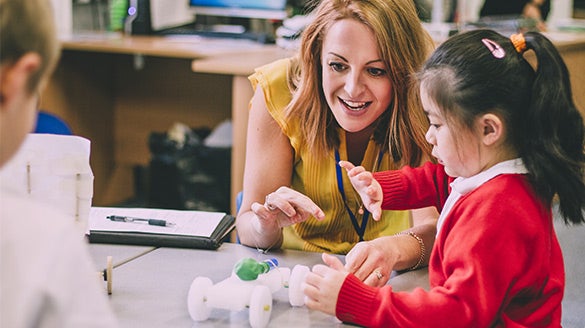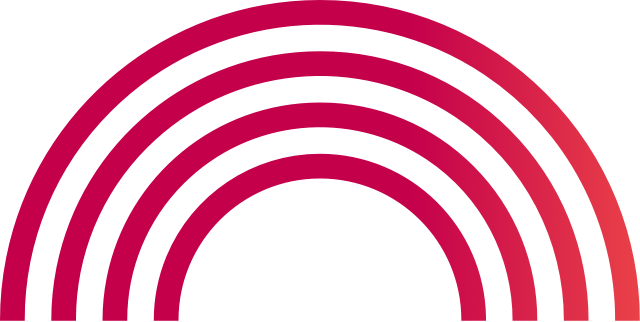- Leading Education in a Global Context
- Assessment in Education: Policies, Pedagogy and Equity
- Inquiry-Based Practice
- Advanced Seminar
- Leading Under Challenging Circumstances
- Leading for Improvement
- Leading Staff
- Leading Community Engagement
Career outcomes
Leading Education
- Head of department
- Deputy principal
- School principal
Science of Learning
- Education leader
- Lead teacher
- Specialist teacher
- Learning support teacher
- Curriculum designer/Curriculum coordinator
Entry criteria
Master of Education
Leading Education specialisation: Admission requirement (Band 6)
- Bachelor of Education or a Bachelor level degree in any other field plus a Graduate Diploma of Education or Master of Teaching; and
- 2 years experience in an educational setting or organisation with equivalents considered.
Science of Learning specialisation: Admission requirement (Band 6)
- Bachelor degree in a cognate discipline; or
- Equivalent prior learning, including at least five years of relevant professional experience.
English Language requirement (Band 4)
English competency requirements may be satisfied through completion of one of the following:
- IELTS Academic Overall band minimum score of 6.5 (no individual band less than 6.0);
- Bachelor degree from a country specified in the Admissions Policy;
- Successfully completed 0.375 EFTSL of study at postgraduate level or higher at an Australian higher education provider (or equivalent);
- Where accepted, equivalent prior learning, including at least five years relevant professional experience; or
- Other tests, courses or programs as defined in the Admissions Policy.
Course Specific Admission Requirements
All applicants are required to have an initial teacher education qualification.
Fees and FEE-HELP
The cost of our Master of Education is $24,390* for all 8 units.
To assist with some or all of your tuition fees, FEE-HELP is available for eligible students. This government-supported loan scheme is designed to help eligible full-fee paying students pay their postgraduate tuition fees.
To find out if you are eligible for FEE-HELP, you can contact one of our Student Enrolment Advisors on 1300 707 760.
*2026 student fees are shown and are subject to change.Accelerated and 100% Online
Delivered 100% online and with six study periods a year, you could complete the Master of Education in as little as 16 months while continuing to work full-time. Designed to be intuitive and user-friendly, you’ll experience the same quality of education and learning outcomes, as well as the connection with your fellow students and academics, that you would if studying on-campus. You will also receive dedicated one-on-one support from a Student Success Advisor who can assist with all non-academic questions and motivate you to reach your study goals.


Grow Your Network
ECU has a large professional teacher and education network, putting you in good company to connect, collaborate and network with experienced and passionate peers globally.
Quality Learning Experience
Your learning experience will be of the highest quality, as you’ll learn from experienced, passionate academics who are experts in their field. From our beginnings in 1902 as Claremont Teachers College, we have been at the forefront of teacher education for over 100 years.

Gaining a Master of Education will not automatically grant you a pay rise. However, postgraduate study can help make you a good candidate for promotions, which can result in a pay rise.
Our online accelerated Master of Education offers six intakes per year and each study period is seven weeks in total. Some study periods will coincide with school holidays but this will not be the case for all of them. You can find the dates of all our study periods on our academic calendar.
We recommend dedicating 15-20 hours per week to your postgraduate study. Our online accelerated models means you will study one unit at a time over seven-week study periods. This means you can complete your Master of Education in as little as 16 months.
No. Our Master of Education is for qualified educators who can apply what they learn to their current role, so placements are not required.
While a Master of Education Online develops advanced knowledge and leadership skills in education, becoming a certified teacher in Australia typically requires completion of a Master of Teaching or other accredited teacher education program. The Master of Education focuses on leadership, curriculum development, and research-based practices, preparing graduates for roles in educational management, policy, or professional development..
The Master of Education Online at ECU can typically be completed in 16 months part-time, depending on your study load and course pathway. The program is delivered one unit at a time over seven-week Study Periods, with six Study Periods available per year, allowing flexibility for working professionals.
A Master of Teaching is a professional qualification that enables graduates to become accredited teachers in primary or secondary education. A Master of Education is a postgraduate education program focused on leadership, curriculum innovation, research, and professional development, rather than teacher accreditation. The Master of Education Online at ECU prepares graduates for strategic and leadership roles in schools or educational organisations with the option of one of two course specialisations: Leading Education or Science of Learning.





